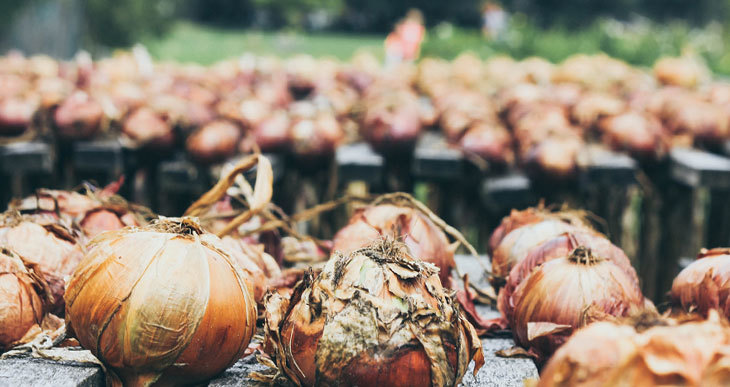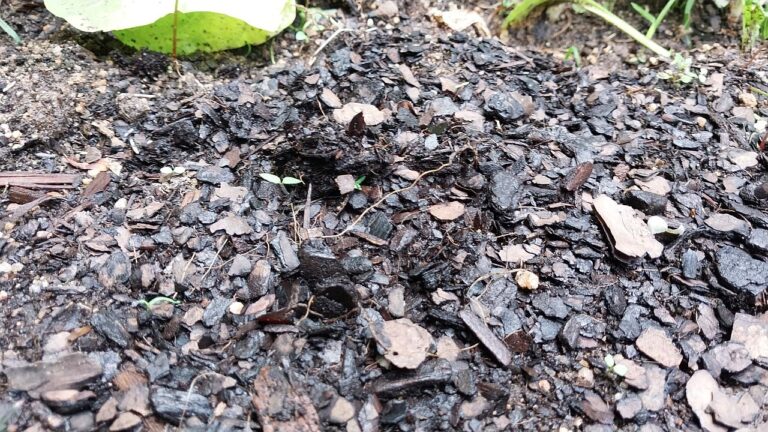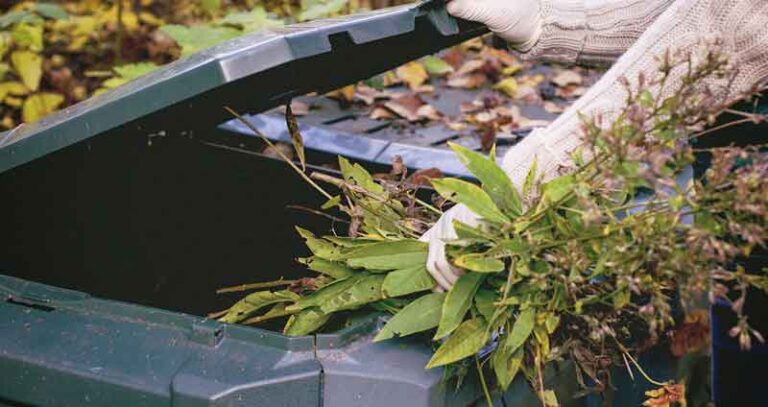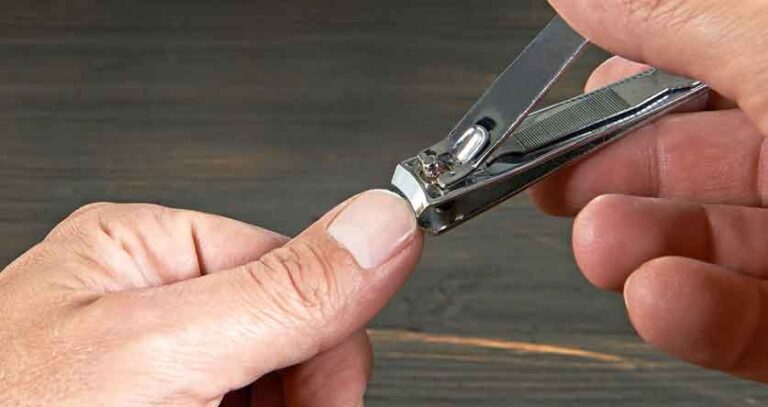Can You Compost Dog Poop? (The Ideal Solution)
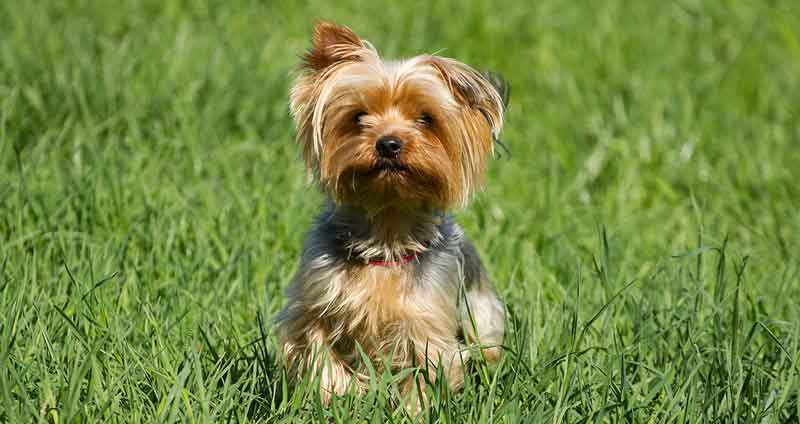
A dog can be a faithful companion, and most of us love our pets dearly.
But let’s face it…
They are also poop machines!
Picking up after them can be a tiresome chore. And I am sure many gardening dog owners have looked at a steaming pile on their freshly mowed lawn and wondered if this abundant resource can be put to good use in the garden!
What if there was an easy way to deal with this mess?
In this article, I’ll answer your questions about the viability of composting dog poop.
Can You Put Dog Poop In Compost?
Dog poop can be composted if you stick to strict guidelines for the composting process and how the compost is used. To kill pathogens, it must be composted at high temperatures in a hot compost that reaches at least 140°F or 60°C to kill pathogens. The compost should not be used on food-generating plants.
When we take a pragmatic look at dog feces and its viability as a compostable material, we must consider several factors before including them in our composting activities.
Pet poop is unlike most other manures that we typically use in our compost piles.
Is Dog Poop Good For Compost?
Dog feces is a source of nitrogen like other manures. However, dogs are meat-eaters. Therefore, their poop can transfer harmful pathogens to a compost pile, making it a potential risk for most home composting methods.
Traditional manures added to garden compost piles are from animals with a plant-based diet (herbivores). The manure from these animals is partially composted plants, with some beneficial decomposition orgasms thrown into the mix.
Our beloved dogs are mostly carnivores, with a bit of plant matter included in their diet here and there. Dog poop is very similar to human waste due to our varied diets. Most of us know that human waste cannot be used directly in compost.
The risk comes from the higher levels of pathogens and dangerous bacteria in dog waste and the possibility of parasites. These fecal microorganisms can be hazardous or disease-causing pathogens.
Consequently, composting dog poop must be done with great care. You need to follow specific guidelines, and the resulting compost should be used judiciously in the garden.
Why Can’t You Compost Dog Poop In A Garden Composter?
A garden composter is not necessarily a hot composter. The low temperatures in this environment will not be sufficient to destroy many of the disease-causing pathogens in dog waste.
A standard garden composter where you dump all your organic garden waste is not a suitable method to dispose of your dog poop.
Does Dog Poop Go In Compost Or Garbage?
Disposing of your dog’s feces in the garbage is not an ideal solution to the problem. Placing the waste in the trash simply transfers the problem to someone else.
Much of our garbage ends up in landfills, and poorly treated dog poop waste will transfer pathogens to the landfill.
Composting your dog waste is the preferable option. Still, the composting must be undertaken within a strict set of guidelines to be safe.
Can Dog Poop Be Used As Fertilizer?
Dog feces in their raw form should never be used as a fertilizer. Some of the dangerous microorganisms found in the pet waste will be transferred to the soil and can survive in that environment. This can pose a health risk to you and your family, especially if you grow food crops.
However, proper treatment in a composting process can destroy these microorganisms and render the waste safe to use in the garden for specific applications.
How To Compost Dog Poop
Dog poop can be composted if you stick to some basic rules. Above all, you should keep pet waste composting separated from other composting systems and only use the resulting compost for ornamental plants.
So what are the guidelines for safely composting dog waste?
- Use a separate dedicated composter
- Use a high temperature composting method
- Add a source of carbon to improve decomposition
- Do not use the compost on crop plants
What’s The Best Way To Dispose Of Dog Poop?
Hot composting is the best way to dispose of dog feces and recycle them into a resource that can be used in the garden.
If you know self-sufficient homesteading techniques, the method is similar to a composting toilet used to process human waste.
The compost pile you use to process your dog poop should be separate from your other composting activities. In other words, you should have a dedicated pet waste compost pile or area.
The basic recipe is simple. You need to include relatively high levels of carbon to stimulate hot composting and sterilize the waste as much as possible. Feces is mostly nitrogen, so you need to balance this with a carbon-rich material to help break down the materials.
Studies performed in Alaska with mushers (dog sled runners) indicate that the best way to achieve the proper carbon to poop ratio is
- 1 part sawdust.
- 2 parts dog poop.
Do not add any other garden waste to the pile.
Placing the feces in a pile and covering it in sawdust also helps to eliminate flies and reduces the odor. (You can also use shredded newspaper or fallen leaves. Any shredded carbon material will do).
When the pile is large enough, mix it well, and cover the pile with a tarp or black plastic to allow the temperature to reach a minimum of 140°F or 60°C. Turn the pile once a week and cover again to ensure even heat distribution throughout the compost pile.
The crucial aspects of the process are:
- High carbon content in the form of sawdust.
- Temperatures above the minimum level.
A long-stemmed compost thermometer helps monitor the internal temperature of the compost pile. (Amazon)
There is no guarantee that all pathogens will be adequately dealt with in the composting process, particularly large roundworms or Toxocara canis. Consequently, the resulting compost should not be used to fertilize food-generating plants.
The dog poop compost can safely be used to feed non-food producing plants such as flowers, lawns, shrubs, and trees – just not your fruit trees!
Dog Waste Composters
The problem with open compost piles is the risk of foul odors and attracting pesky flies.
Commercial dog waste composters are available, which can help contain the compost pile in a smaller location. They also retain heat well to get the compost pile to the correct temperatures. And the lid helps reduce odors and access by flies.
Many commercial products, such as the Doggie Dooley (Amazon link), include a limited supply of a digesting enzyme that can be added to the compost to speed up the process.
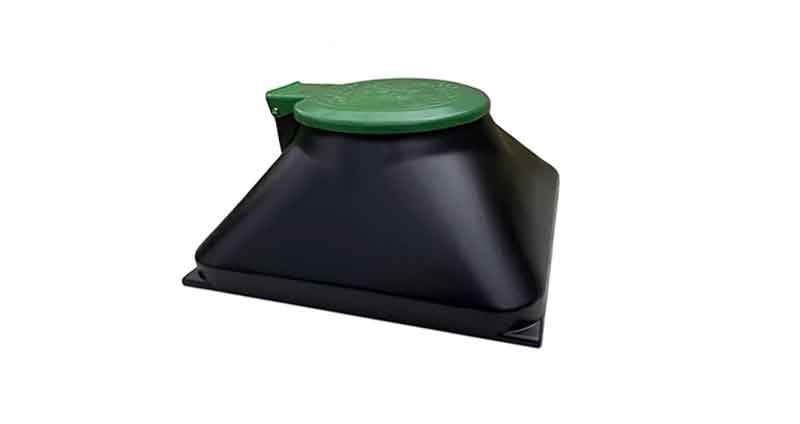
The downside of these products is that most are small and would only be suitable for small gardens and small dogs or one dog. If you have a larger garden, a large dog, or more than one dog, a traditional compost pile in a secluded location might offer the best solution.
How Long Does It Take To Compost Dog Waste?
Hot composting is a relatively fast composting method. However, Composting pet feces with this method will take between 4 to 8 weeks to fully decompose and produce a result that looks like regular compost.
Keep in mind that the time will depend on your local weather conditions and where you locate the compost pile. A good sunny corner of the garden is the ideal location to get those temperatures good and hot!
Can You Compost Dog Poop With Worms?
Safely composting dog poop requires hot compost, which creates an environment too hot for most worms to survive.
The heat in the composting process and the risk of pathogens detrimentally affecting the worms are why you should not compost pet waste with worms.
Conclusion
Composting dog poop is an effective and eco-friendly method of disposing of your dog’s waste. The technique does require a bit of effort and adequate management and monitoring. Still, the task is not too burdensome for most gardeners.
Why not turn a waste product into a valuable resource to feed all the non-food producing plants in your garden!


